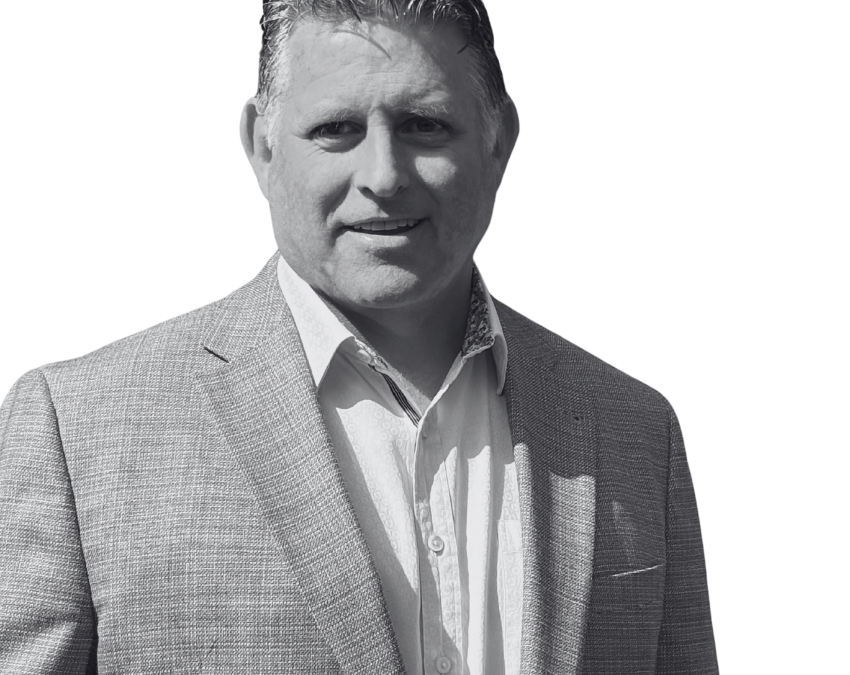
by Remedy Wellness Centre | Jul 14, 2025 | Mental Health
Strengthening Families with Family Systems Therapy – Meet Dr. Scott Aylwin, RCC
Every family has its own unique dynamics, communication patterns, and challenges. When one member of the family is struggling, it often affects everyone. That’s where Family Systems Therapy comes in. At our clinic in Victoria, BC, Dr. Scott Aylwin, Registered Clinical Counsellor (RCC), uses this powerful, evidence-informed approach to help families build stronger, healthier relationships.
What Is Family Systems Therapy?
Family Systems Therapy is based on the idea that individuals are best understood within the context of their family unit. Rather than focusing on just one person’s symptoms or behaviour, this approach looks at the patterns, roles, and communication styles that influence the whole family system.
Through Family Systems Therapy, families learn to:
- Identify and shift unhelpful communication patterns
- Understand each person’s role and influence within the family
- Improve emotional connection and support
- Strengthen boundaries and conflict resolution skills
- Promote healing across generations
Whether you’re dealing with parenting stress, sibling conflict, blended family transitions, or intergenerational trauma, this approach helps bring clarity, compassion, and structure to complex dynamics.
Meet Dr. Scott Aylwin, RCC
With a background in both clinical counselling and forensic mental health, Dr. Scott Aylwin brings a wealth of experience and a compassionate, non-judgmental presence to his work with families. His approach is collaborative, trauma-informed, and tailored to the unique needs of each family he supports.
Scott helps families:
- Create space for each member to be heard and understood
- Explore the emotional needs beneath behaviour patterns
- Develop new ways of connecting that foster respect and resilience
His sessions are grounded in empathy, structure, and insight—providing families with the tools they need to break cycles of conflict and move forward together.
Common Issues Addressed with Family Systems Therapy:
Parent-Child Conflict – Power struggles, misunderstandings, and generational gaps can strain the bond between parents and children. Family Systems Therapy helps clarify roles, foster empathy, and promote healthier interactions.
Communication Breakdowns – When family members stop feeling heard or understood, tension and distance can grow. Therapy focuses on rebuilding communication patterns that support connection and reduce conflict.
Coping with Divorce or Separation – Separation can be emotionally destabilizing for both parents and children. This approach supports families in adjusting to new structures while maintaining emotional security and clear boundaries.
Blended Family Challenges – Merging two family units can come with loyalty conflicts, unclear roles, and differing parenting styles. Therapy helps stepfamilies navigate these complexities with clarity and compassion.
Grief and Loss Within the Family – The death of a loved one, pet, or even a major life change can impact the emotional balance of the whole family. Family counselling creates a space to process grief together and support one another.
Teen Mental Health and Behaviour Concerns – Adolescents may struggle with anxiety, depression, identity, or school-related stress. Family Systems Therapy works to strengthen the support network around teens while also addressing systemic dynamics that may contribute to their distress.
Family Trauma and Stress-Related Issues – Whether due to past abuse, illness, financial strain, or intergenerational trauma, families may find themselves stuck in cycles of stress or disconnection. Therapy helps families understand these patterns, build resilience, and move toward healing together.
Why Choose Family Systems Therapy?
Families are interconnected, and healing one part of the system often leads to positive change throughout. This therapy helps uncover the root causes of conflict, improve relationships, and build a more supportive family environment.
Family Systems Therapy isn’t about blaming or pointing fingers—it’s about creating understanding, encouraging growth, and learning how to move forward as a unit.
Start the Conversation
If your family is feeling stuck, disconnected, or overwhelmed, Family Systems Therapy with Dr. Scott Aylwin may be the support you need. You don’t have to navigate these challenges alone.
📅 Book a session today to begin building a stronger, more connected family.
#FamilySystemsTherapy #CounsellingVictoriaBC #DrScottAylwin #FamilyCounselling #HealthyFamilies #ConflictResolution #ParentingSupport #BlendedFamilies #IntergenerationalHealing

by Remedy Wellness Centre | Jun 3, 2025 | Mental Health
Counselling for Men’s Issues: What Men Commonly Seek Support For
Despite growing awareness around mental health, many men still hesitate to seek counselling. Cultural expectations around masculinity, emotional suppression, and “toughing it out” can make it difficult to ask for help. But the reality is, counselling offers a safe and supportive space for men to explore challenges, gain tools to cope, and improve overall well-being.
At our clinic, we recognize that men face unique pressures and experiences that impact their mental and emotional health. Here’s a closer look at the most common reasons men seek counselling—and why it’s a sign of strength, not weakness, to reach out.
Top Reasons Men Seek Counselling
1. Stress and Burnout
Many men come to counselling when they’re feeling overwhelmed by the pressure to succeed at work, provide for their families, or meet societal expectations. Chronic stress can lead to burnout, irritability, sleep issues, and health problems.
Counselling helps men:
-
Recognize signs of burnout
-
Set healthy boundaries
-
Learn stress-reduction strategies
-
Reconnect with values and priorities
2. Anxiety and Depression
Men often experience anxiety and depression differently than women, sometimes expressing it through anger, withdrawal, or substance use rather than sadness or worry. These symptoms are frequently overlooked or misdiagnosed.
Counselling can support men in:
-
Identifying emotional patterns
-
Managing anxious or depressive thoughts
-
Rebuilding motivation and energy
-
Developing healthy coping tools
3. Relationship and Family Issues
Whether it’s communication struggles, parenting challenges, or relationship breakdowns, many men seek counselling to improve their personal relationships. Some also want to learn how to model emotional intelligence for their children.
Men’s counselling often focuses on:
-
Improving communication skills
-
Navigating separation or divorce
-
Strengthening co-parenting or blended families
-
Exploring vulnerability and emotional intimacy
4. Anger and Emotional Regulation
Men are frequently socialized to suppress emotions, which can lead to frustration and unprocessed anger. Counselling provides a space to explore the roots of this anger and build better tools for emotional regulation.
With support, men can:
-
Understand emotional triggers
-
Learn healthier ways to express feelings
-
Break cycles of reactive behaviour
-
Improve self-awareness and self-control
5. Grief and Loss
Loss affects everyone, but men may feel pressure to “stay strong” and avoid expressing sadness. Counselling offers a space where men can safely explore grief, process loss, and heal.
6. Identity, Purpose, and Transitions
Men may struggle with identity and self-worth during major life changes—such as job loss, retirement, aging, or becoming a father. Counselling helps navigate these transitions with confidence and clarity.
Breaking the Stigma: Why Men’s Mental Health Matters
It’s time to normalize that men, just like anyone else, can benefit from talking things through. Seeking counselling is not a sign of weakness—it’s a proactive step toward self-awareness, resilience, and healthier relationships.
In fact, men who engage in counselling often report improvements in emotional well-being, communication, and overall life satisfaction.
How We Help
Our counsellors provide evidence-based approaches such as:
-
Cognitive Behavioural Therapy (CBT)
-
Mindfulness-Based Therapy
-
Emotion-Focused Therapy (EFT)
-
Solution-Focused Therapy
We offer confidential, respectful, and judgement-free support for men of all backgrounds and experiences. Whether you’re dealing with stress, anger, grief, or personal growth, we’re here to help.
Book a Session Today
If you’re ready to take the first step toward positive change, we’re here to support you. Reach out today to book a confidential counselling session for men.
#MensMentalHealth #CounsellingForMen #StressManagement #EmotionalWellbeing #DepressionSupport #MenAndTherapy #MentalHealthMatters #TherapyForMen #BreakTheStigma

by Geeks on the Beach | Jun 2, 2025 | Team
registered clinical counsellor
PRACTICING SINCE 2010
Dr. Scott Aylwin, BA (Crim), PhD, RCC
Scott comes to the Remedy team after a career in Addiction & Mental Health in Alberta. After spending 15 years as a group therapist in the field of Forensic Psychiatry, Scott moved into senior leadership roles in the public health care system. Since relocating to Victoria in 2025 Scott is very excited to resume clinical work as Registered Clinical Counsellor.
Scott views the interpersonal relationship as the most important, and sometimes the most challenging aspect of modern life. Consequently, his approach to the therapy experience is to use the counselling session as a vehicle to explore, de-construct, and ultimately improve the satisfaction clients experience in daily life.
We all have a personal history that impacts our relationships, and Scott is committed to helping clients understand how that plays out in the here-and-now. Scott believes strongly in the strength and resilience of people and will work to inspire and challenge you to be the best version of yourself.
Always providing care from a trauma-informed perspective, Scott will work with the goals that you have. Some clients will benefit from a brief solution focused approach, whereas others will need to spend time integrating past trauma or gaining insight into relationship dynamics and current life stressors. Scott is currently getting advanced training in family/couples therapy.
Areas of Focus
- Anxiety
- Depression
- Couples/Family work
- General relationship challenges
- Paraphilias
- Men’s issues
Scott is proud to be married for 34 years with two grown sons. Scott can often be found walking the trails and beaches with his dogs Archie and Veronica.
About Counselling

by Remedy Wellness Centre | Feb 27, 2025 | Mental Health
Grief is a natural response to loss, but that doesn’t make it any easier to navigate. Whether you’ve lost a loved one, a pet, a job, or even a relationship, the emotional impact can be overwhelming. While grief is a personal journey, you don’t have to go through it alone. Counselling for grief and loss provides a supportive space where you can process emotions, find ways to cope, and gradually move toward healing.
Understanding Grief and Loss
Grief affects everyone differently. While some people experience sadness, others may feel anger, numbness, or even relief, depending on the circumstances. The five stages of grief—denial, anger, bargaining, depression, and acceptance—are commonly referenced, but not everyone moves through them in a linear way. Your grieving process is unique to you.
Loss can come in many forms, including:
- The death of a loved one or pet
- Divorce or relationship breakdown
- Job loss or career change
- Loss of health due to illness or injury
- Major life transitions, such as moving to a new city
How Grief Counselling Helps
Grief counselling provides a safe and compassionate space to explore your emotions and find ways to adjust to life after loss. A registered clinical counsellor or registered social worker can help you:
✔ Process Your Emotions – Grief can bring up a mix of emotions, from sadness to guilt. Counselling helps you understand and express these feelings in a healthy way.
✔ Develop Coping Strategies – Learn tools to manage overwhelming emotions, reduce anxiety, and build resilience.
✔ Navigate Complicated Grief – If your grief feels stuck or unmanageable, therapy can help you work through it.
✔ Find Meaning and Acceptance – Counsellors can guide you in finding ways to honor your loss while moving forward.
✔ Reduce Isolation – Speaking to a counsellor provides a non-judgmental space where you can feel heard and supported.
Counselling Approaches for Grief and Loss
Different therapy techniques can support grief recovery, including:
1. Cognitive Behavioral Therapy (CBT)
CBT helps individuals recognize and challenge negative thought patterns that may be making grief more overwhelming. Studies show that CBT is effective in treating complicated grief and depression related to loss (source).
Case Study: Sarah, a 45-year-old woman, struggled with overwhelming guilt after losing her mother. Through CBT, she learned to identify unhelpful thought patterns and develop healthier coping mechanisms, which helped her regain a sense of peace.
2. Mindfulness-Based Therapy
Mindfulness helps individuals stay present and process their emotions without judgment. Research indicates that mindfulness can reduce anxiety and distress in grieving individuals (source).
Example: Mark, a 32-year-old professional, lost his best friend unexpectedly. Mindfulness exercises helped him accept his grief without feeling overwhelmed, allowing him to reconnect with positive memories instead of being consumed by sorrow.
3. Acceptance and Commitment Therapy (ACT)
ACT focuses on accepting emotions rather than suppressing them. It helps individuals align their values with meaningful actions after a loss.
Case Study: Lisa, a 50-year-old woman who lost her spouse, found it difficult to move forward. ACT helped her acknowledge her grief while gradually engaging in activities that aligned with her values, such as volunteering and community work.
4. Grief-Specific Therapy
Approaches such as Complicated Grief Therapy (CGT) are designed specifically for individuals struggling with prolonged grief. Studies suggest that CGT is more effective than traditional therapy for severe grief cases (source).
Example: David, a 60-year-old retiree, experienced deep and prolonged grief after his wife’s passing. CGT helped him process his emotions in a structured way, allowing him to find peace and re-engage with life.
When to Seek Grief Counselling
While grief is a normal experience, some signs indicate that counselling may be beneficial:
- Intense sadness or hopelessness that doesn’t improve over time
- Trouble functioning in daily life due to grief
- Avoiding reminders of the loss or feeling stuck in grief
- Feeling disconnected or struggling with relationships
- Experiencing anxiety, depression, or physical symptoms linked to grief
If your grief feels overwhelming or prolonged, seeking support from a grief counsellor can help you regain a sense of balance and hope.
Take the Next Step Toward Healing
If you or a loved one is struggling with grief, professional counselling can provide the guidance and support needed to navigate the healing process. You don’t have to face grief alone—reach out today to find compassionate counselling that can help you move forward.
👉 Book a session today and take the first step toward healing.
#GriefCounselling #CopingWithLoss #HealingFromGrief #MentalHealthSupport #GriefTherapy #Mindfulness #CBT #VictoriaBCCounselling

by Remedy Wellness Centre | Feb 12, 2025 | Mental Health
Conflict is a natural part of life—whether it occurs in personal relationships, families, workplaces, or social settings. However, unresolved conflict can lead to stress, resentment, and emotional distress. When tensions escalate, registered clinical counselling can provide a safe, structured environment to address issues, rebuild trust, and foster healthier communication.
In this article, we’ll explore how clinical counselling helps with conflict resolution, the methods commonly used, and real-life success stories that demonstrate its effectiveness.
Why Conflict Resolution Matters
Unresolved conflicts can have far-reaching effects, including:
- Increased anxiety and stress
- Damaged relationships and emotional distance
- Decreased productivity and satisfaction at work
- Persistent resentment and emotional pain
Addressing conflict in a healthy, constructive way helps individuals and groups move forward with greater understanding, respect, and emotional well-being.
How Clinical Counselling Helps Resolve Conflict
Registered clinical counsellors are trained in conflict resolution techniques that help individuals and groups navigate disputes effectively. Through counselling, patients learn how to:
✅ Express their feelings and needs openly and honestly
✅ Improve communication skills and active listening
✅ Manage emotions and reduce reactivity
✅ Find common ground and work toward solutions
With the guidance of a skilled therapist, individuals can transform conflicts into opportunities for growth, healing, and deeper connection.
Common Methods Used in Conflict Resolution Counselling
1. Cognitive Behavioral Therapy (CBT)
CBT helps clients recognize and reframe negative thought patterns that fuel conflict. By shifting perspectives and developing healthier coping mechanisms, individuals can approach disagreements with greater clarity and emotional regulation.
Example: A couple struggling with frequent arguments about household responsibilities learned through CBT how to identify underlying triggers, communicate their needs more effectively, and develop a shared problem-solving approach.
2. Emotion-Focused Therapy (EFT)
EFT addresses the emotions driving conflict, helping individuals explore their feelings, fears, and unmet needs. This method is particularly effective in relationships where deep emotional wounds need healing.
Example: A father and daughter who had grown apart due to years of unresolved tension were able to reconnect through EFT by expressing their vulnerabilities and fears in a safe space.
3. Mindfulness-Based Stress Reduction (MBSR)
Mindfulness practices teach individuals to remain present and non-reactive during conflicts, fostering greater self-awareness and emotional control. Techniques such as deep breathing and meditation can help prevent conflicts from escalating.
Example: A workplace team dealing with high stress and frequent miscommunications integrated mindfulness exercises into their daily routine, leading to improved focus, patience, and collaboration.
4. Nonviolent Communication (NVC)
NVC helps individuals communicate with empathy and respect. By using “I” statements instead of blaming or accusing, clients learn how to express their emotions and needs constructively.
Example: A married couple on the verge of separation used NVC techniques to shift from accusatory language to compassionate dialogue, allowing them to work through their differences without hostility.
5. Mediation and Solution-Focused Therapy
For conflicts that require immediate resolution, a mediator (the counsellor) facilitates structured discussions where each party can share their concerns and work collaboratively toward solutions. Solution-focused therapy emphasizes strengths and positive outcomes rather than dwelling on past grievances.
Example: Two business partners facing a potential split due to misaligned goals found common ground through mediation, leading to a restructured business plan that met both of their needs.
Success Stories: The Power of Conflict Resolution Counselling
🌟 Rebuilding a Marriage
After years of escalating arguments, Lisa and James sought counselling as a last effort before divorce. Through EFT and NVC, they learned to understand each other’s emotional triggers and communicate with empathy. Today, they report a healthier, more respectful relationship built on mutual understanding.
🌟 Healing a Family Rift
Mark and his brother hadn’t spoken in five years due to a business dispute that tore their family apart. In counselling, they uncovered past wounds and misinterpretations that had fueled their estrangement. By working through their emotions in a structured environment, they reconciled and restored their bond.
🌟 Resolving Workplace Tension
A marketing team struggling with office conflicts saw significant improvements after attending counselling sessions that focused on conflict resolution skills. The result? Increased collaboration, a more positive work environment, and a dramatic reduction in stress-related absences.
Take the First Step Toward Resolution
Conflict is inevitable, but with the right tools and guidance, it doesn’t have to damage relationships or well-being. Whether you’re facing personal struggles, family disputes, or workplace challenges, registered clinical counselling can provide the support you need to navigate conflicts with clarity and confidence.
💡 Are you ready to resolve conflict and build healthier relationships? Contact us today to learn how counselling can help you move forward with greater peace and understanding.
#ConflictResolution #CounsellingForRelationships #HealthyCommunication #TherapyForFamilies #WorkplaceWellness #HealingConnections #MentalHealthMatters
Learn more About Counselling HERE





